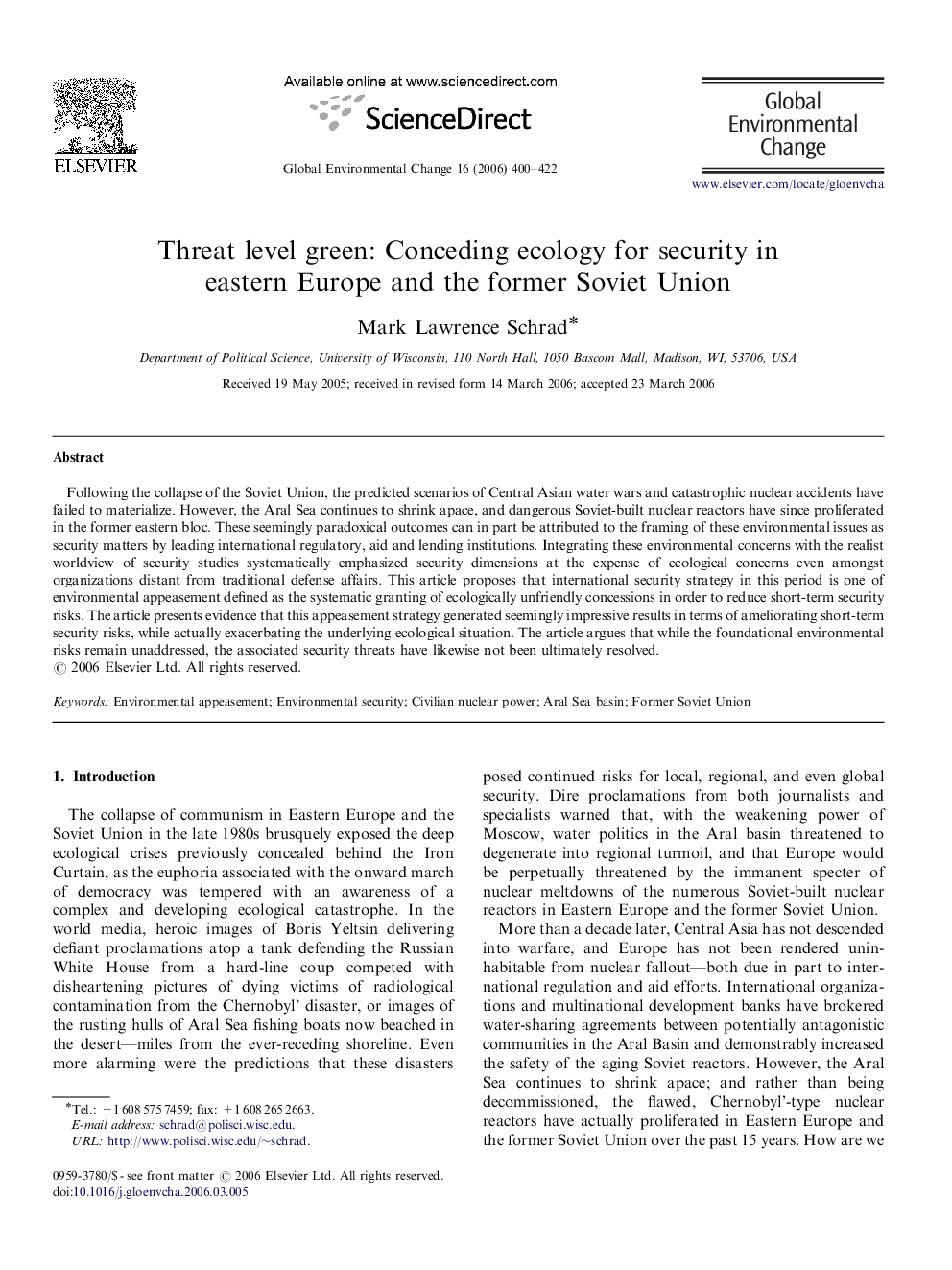| Article ID | Journal | Published Year | Pages | File Type |
|---|---|---|---|---|
| 1055040 | Global Environmental Change | 2006 | 23 Pages |
Following the collapse of the Soviet Union, the predicted scenarios of Central Asian water wars and catastrophic nuclear accidents have failed to materialize. However, the Aral Sea continues to shrink apace, and dangerous Soviet-built nuclear reactors have since proliferated in the former eastern bloc. These seemingly paradoxical outcomes can in part be attributed to the framing of these environmental issues as security matters by leading international regulatory, aid and lending institutions. Integrating these environmental concerns with the realist worldview of security studies systematically emphasized security dimensions at the expense of ecological concerns even amongst organizations distant from traditional defense affairs. This article proposes that international security strategy in this period is one of environmental appeasement defined as the systematic granting of ecologically unfriendly concessions in order to reduce short-term security risks. The article presents evidence that this appeasement strategy generated seemingly impressive results in terms of ameliorating short-term security risks, while actually exacerbating the underlying ecological situation. The article argues that while the foundational environmental risks remain unaddressed, the associated security threats have likewise not been ultimately resolved.
